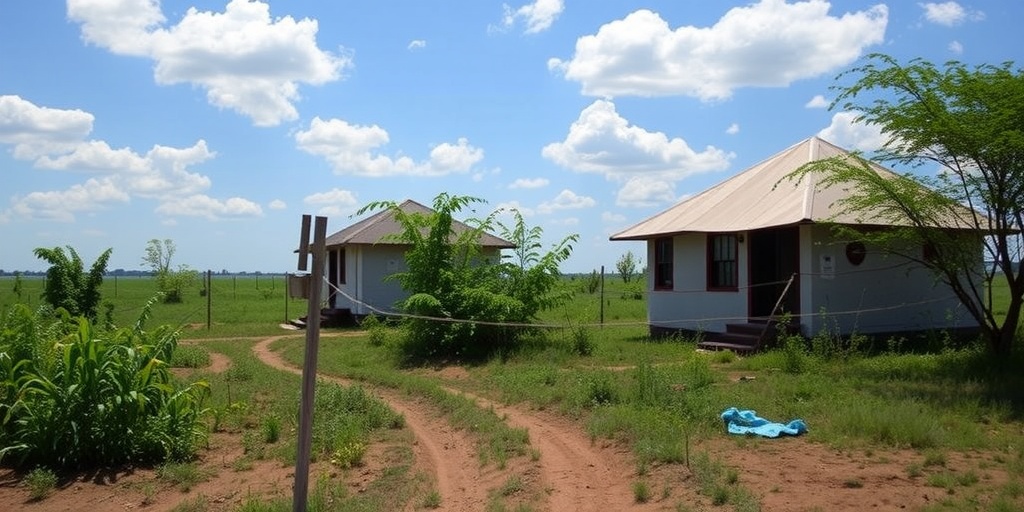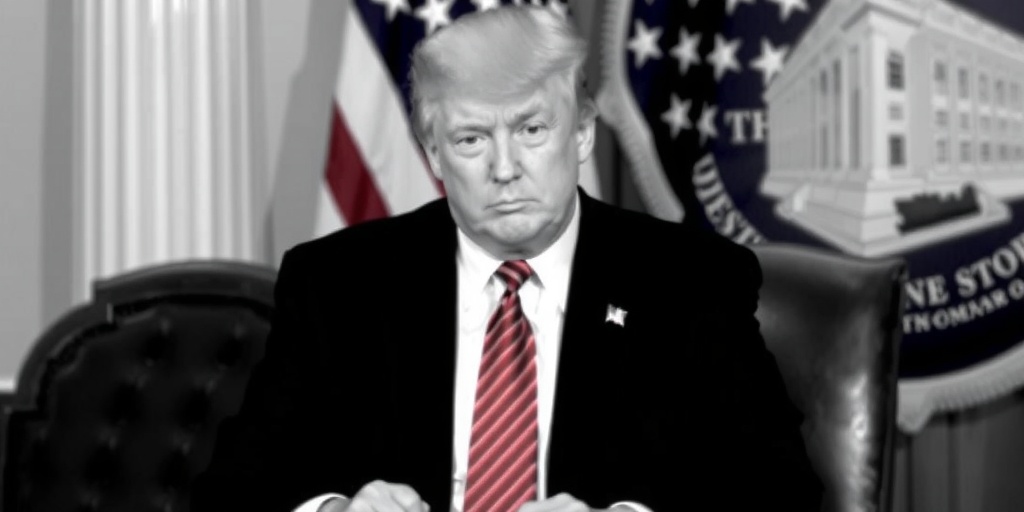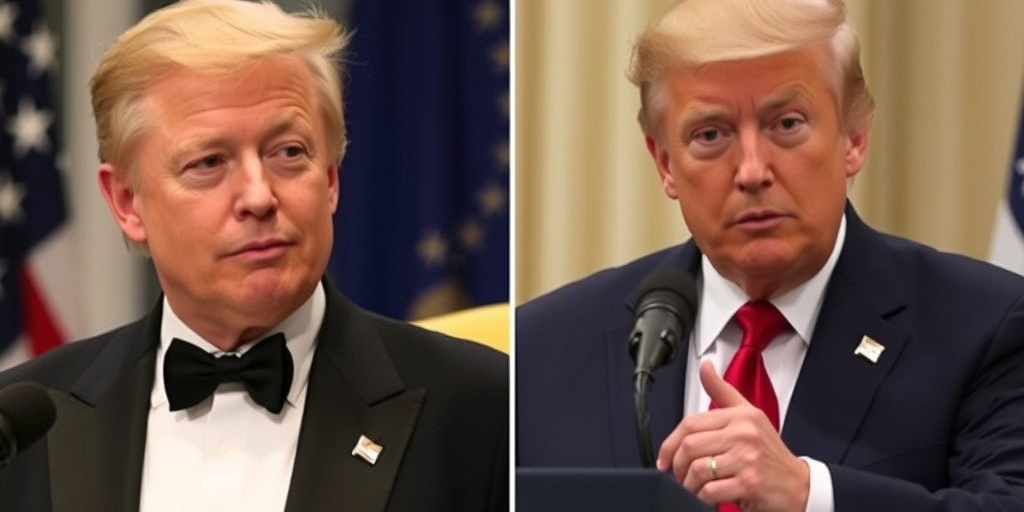Now Reading: TB Resurges as Trump’s Funding Cuts Disrupt Global Treatment
-
01
TB Resurges as Trump’s Funding Cuts Disrupt Global Treatment
TB Resurges as Trump’s Funding Cuts Disrupt Global Treatment

Title: Tuberculosis Crisis Deepens in Kenya Following Cuts in U.S. Aid
In western Kenya, Dalvin Modore navigates his small farm with a painful caution, his frail body and sagging trousers add to the image of a man steadily consumed by a grave illness. At 40, Modore has tuberculosis (TB) and weighs a mere 110 pounds. His symptoms, a persistent cough occasionally mixed with blood, signify a disease that not only places him in immediate danger but is also spreading through his community due to a lack of access to medical care.
Modore’s plight is not unique; he is among thousands in Kenya—and millions globally—suffering from TB who have been hit hard by a breakdown in healthcare services. This deterioration follows significant cuts in foreign aid from the Trump administration, which halted crucial funding for health programs around the world. Health officials warn that the consequences of this freeze are dire, with a rising number of people experiencing worsening TB symptoms while also transmitting the disease within their families and communities.
Since the aid freeze took effect on January 20, the ability to identify, treat, and manage tuberculosis has faltered in many countries throughout Africa and Asia. The United States contributed about half of the international funding for TB efforts in the previous year. In Kenya, American support funded vital resources ranging from nursing staff to laboratory equipment, making the abrupt cessation of aid a critical blow to TB programs.
Worryingly, as testing and treatment efforts halted, preventive therapies for family members of infected individuals were left inaccessible. In densely populated areas like Nairobi, adults and children sleep in cramped conditions, facilitating further transmission of the disease. Families who rushed their sick children for testing just before the aid cuts now await results, with testing for drug-resistant forms of TB coming to a standstill.
The seriousness of the situation is underscored by the staggering statistic that tuberculosis claimed 1.25 million lives globally last year. Essential research and testing programs for TB have been suspended, and the global agency responsible for procuring TB medications is struggling without funding. Notably, the consortium, Stop TB, which once coordinated efforts among governments and patient groups, faced cancellation of its operations, later rescinded, yet still finds itself without new resources.
The ramifications of the U.S. funding cut have rippled through Kenya’s healthcare infrastructure, where the absence of financial backing has halted testing, treatment, and preventive measures. The community health workers and TB Champions, who play a vital role in monitoring and supporting patients through treatment, are now left unpaid and are exhausting their own funds to assist those suffering from TB.
In a striking example of resilience, Doreen Kikuyu, a local TB Champion, visited Modore after noticing his persistent cough. She managed to collect a sputum sample and arranged for its testing, only to be hindered by the funding freeze. Despite the challenges, she walked to Modore’s home to deliver the results. When it was revealed that he did not have a drug-resistant strain of TB, the next hurdle emerged: the clinic staff, funded by the United States, had been laid off, leaving Modore without a doctor for prescription medications.
The persistence of Kikuyu ultimately led to a breakthrough; she solicited support from local health officials, leading to Modore receiving his much-needed medication. However, this victory came with a new challenge: the surrounding family members at risk also required preventive treatment, complicating an already precarious situation.
For another patient, Barack Odima, living with an extensively drug-resistant form of TB, the funding cuts have left him without essential medications. Faced with the uncertainty of whether he would receive the life-saving drugs he needed, Odima’s experience illustrates the broader impact of the aid withdrawal, with many patients finding themselves caught in health-imposed limbo.
Even as clinics receive sporadic drug shipments, essential support for the ongoing health monitoring that TB treatment requires has vanished. Without the routine blood tests to track how patients are responding to drugs, many are left vulnerable to potentially severe side effects, further complicating their treatment paths.
The situation is exacerbated by the lack of integration of TB patients into Kenya’s broader healthcare system, which is already overwhelmed with a high volume of new cases. Dramatically, health officials are now tasked with absorbing patients from clinics that previously catered specifically to TB and HIV/AIDS, raising various quality-of-care issues due to inadequate training among general healthcare providers.
With TB cases soaring and vital treatment measures deteriorating, the work of community health advocates has assumed greater significance. They are tirelessly re-engaging with patients, collecting samples, and attempting to deliver diagnoses despite the crippling lack of resources. Agnes Okose, another TB Champion, has begun funding her efforts through her small snack stall, demonstrating an unfaltering commitment to support those afflicted by TB.
In conclusion, the consequence of the U.S. funding freeze has set Kenya’s battle against tuberculosis back significantly, igniting a public health crisis where thousands like Dalvin Modore await treatment amid an for escalating epidemic. Unless substantial financial support is reinstated, or viable alternatives are found, the future for TB patients in Kenya remains perilously uncertain.
Stay Informed With the Latest & Most Important News
Previous Post
Next Post
-
 01New technology breakthrough has everyone talking right now
01New technology breakthrough has everyone talking right now -
 02Unbelievable life hack everyone needs to try today
02Unbelievable life hack everyone needs to try today -
 03Fascinating discovery found buried deep beneath the ocean
03Fascinating discovery found buried deep beneath the ocean -
 04Man invents genius device that solves everyday problems
04Man invents genius device that solves everyday problems -
 05Shocking discovery that changes what we know forever
05Shocking discovery that changes what we know forever -
 06Internet goes wild over celebrity’s unexpected fashion choice
06Internet goes wild over celebrity’s unexpected fashion choice -
 07Rare animal sighting stuns scientists and wildlife lovers
07Rare animal sighting stuns scientists and wildlife lovers





















